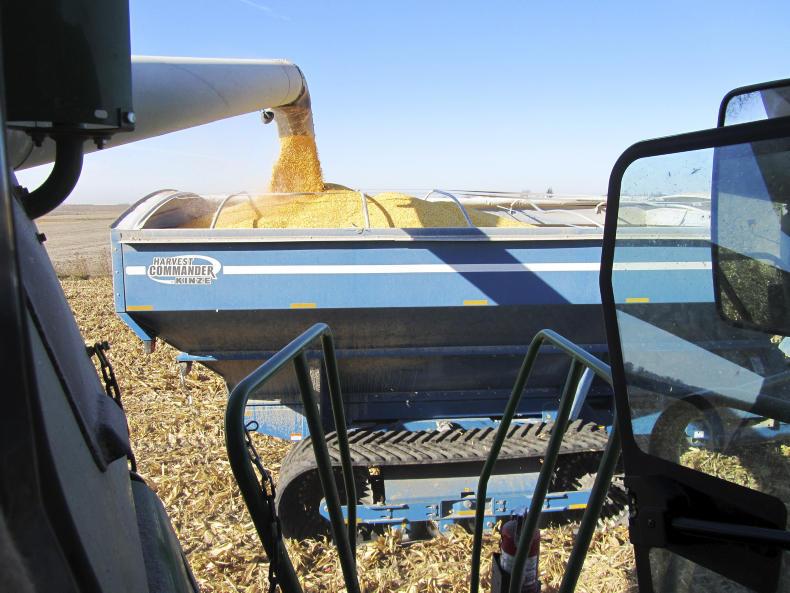There is no immediate reason to believe that the US presidential election outcome will have any major or direct impact on the grain world.
It is reasonable to say that, many serious grain farmers welcome the result believing that the Trump win is so much better for agriculture in the long-term.
From a US perspective, there is a level of concern with regard to his potential relationship with China, given its importance for soya bean exports. There is a belief that major concerns, such as farm regulation and taxes are likely to be much more favourably treated under Trump than under Clinton.
Stance on agriculture
Some believe that Trump’s attitude to agriculture will depend on and be influenced by who he aligns himself with in Congress.
However, it seems unlikely that he will interfere in free markets but may increase protectionism within US agriculture and industry.
Most believe that comments relating to limited trade refer much more to protection for industries such as the automotive or technology sectors than to agricultural commodities.
Most expect no major change for trade, but that is specifically on the export side. The fact that Trump is seen as being pro-business is expected to offset any negatives to agricultural trade. But who knows?
With soya bean exports being so important in reducing the US trade balance deficit, most believe that it is unlikely to be tampered with. But even if change is to take place, it will take some time and will probably be well heralded.
Global grain trade
With increasing global trade in grains, the US is no longer the global power that it used to be. However, it is still a major global producer which uses modern technologies to continue to expand it production capacity. Its decline as an export powerhouse is much more to do with increasing domestic demand and the expanding production capability of other countries such as Brazil and Russia.
Whether or not Trump can implement his promise to significantly reduce government regulation of agricultural producers remains to be seen. Society itself has an increasing influence on the evolution of such regulations.
Ireland
In terms of impact for Irish producers, any negative policy shift on whiskey imports could have serious impact. Our other main concern would be oats, and specifically the Glanbia contacts and Flahavan porridge exports.
Read more
Listen: what a Trump presidency means for farmers
Full coverage: Donald Trump
There is no immediate reason to believe that the US presidential election outcome will have any major or direct impact on the grain world.
It is reasonable to say that, many serious grain farmers welcome the result believing that the Trump win is so much better for agriculture in the long-term.
From a US perspective, there is a level of concern with regard to his potential relationship with China, given its importance for soya bean exports. There is a belief that major concerns, such as farm regulation and taxes are likely to be much more favourably treated under Trump than under Clinton.
Stance on agriculture
Some believe that Trump’s attitude to agriculture will depend on and be influenced by who he aligns himself with in Congress.
However, it seems unlikely that he will interfere in free markets but may increase protectionism within US agriculture and industry.
Most believe that comments relating to limited trade refer much more to protection for industries such as the automotive or technology sectors than to agricultural commodities.
Most expect no major change for trade, but that is specifically on the export side. The fact that Trump is seen as being pro-business is expected to offset any negatives to agricultural trade. But who knows?
With soya bean exports being so important in reducing the US trade balance deficit, most believe that it is unlikely to be tampered with. But even if change is to take place, it will take some time and will probably be well heralded.
Global grain trade
With increasing global trade in grains, the US is no longer the global power that it used to be. However, it is still a major global producer which uses modern technologies to continue to expand it production capacity. Its decline as an export powerhouse is much more to do with increasing domestic demand and the expanding production capability of other countries such as Brazil and Russia.
Whether or not Trump can implement his promise to significantly reduce government regulation of agricultural producers remains to be seen. Society itself has an increasing influence on the evolution of such regulations.
Ireland
In terms of impact for Irish producers, any negative policy shift on whiskey imports could have serious impact. Our other main concern would be oats, and specifically the Glanbia contacts and Flahavan porridge exports.
Read more
Listen: what a Trump presidency means for farmers
Full coverage: Donald Trump






 This is a subscriber-only article
This is a subscriber-only article










SHARING OPTIONS: